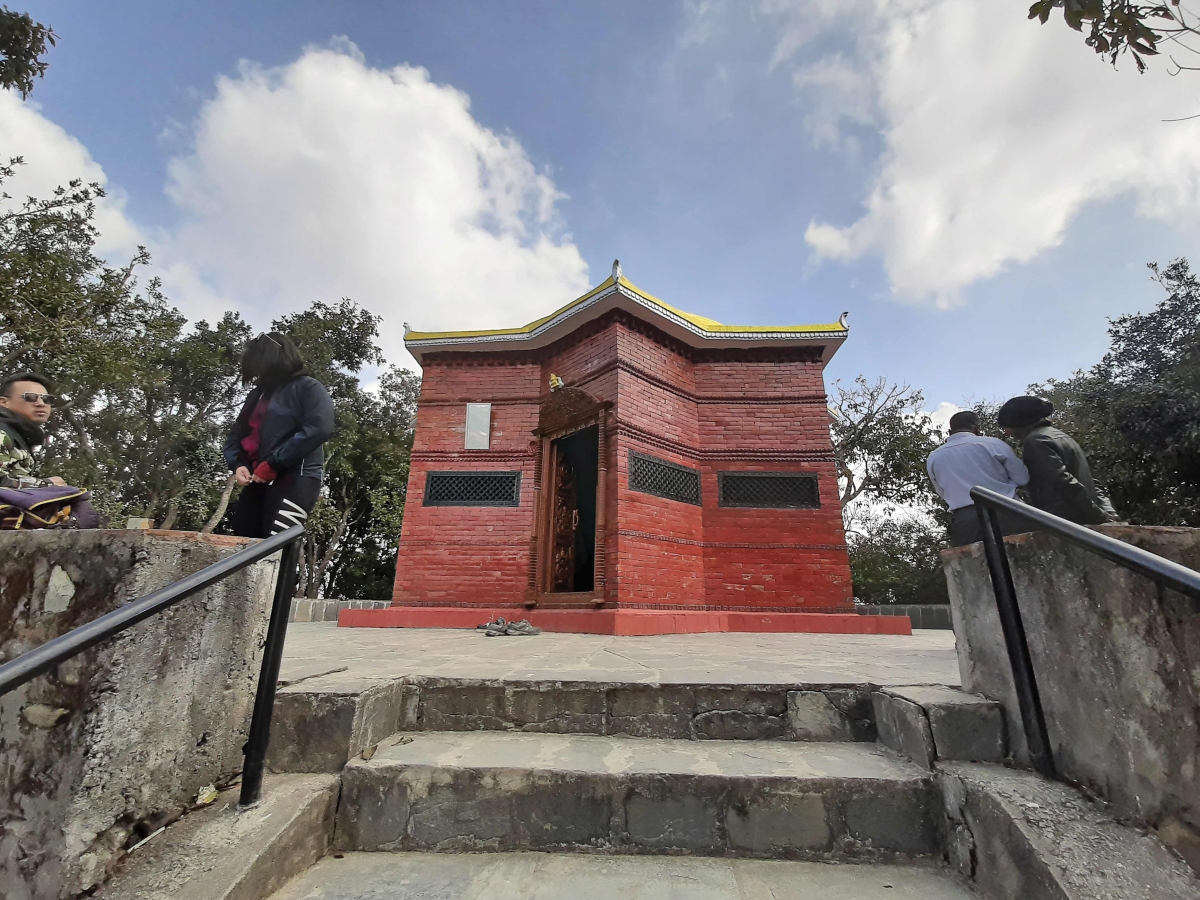Although it took time for me to understand the kind of poverty that prevailed in South East Asia, the impact it had on me was immense.
Karl Rebele, representative of an aid organization Nepal-hilfe Beilngries is a man with a mission – to give hope to the underprivileged children in Nepal. Karl, a policeman back home in Germany is one of the founders and a key person in giving continuity to the process of this altruistic work for the last fourteen years. In 1998, Nepalhilfe Beilngries was honored with Bundesverdienstkreuz, a redeemed award in Germany and in 1999 he was awarded with Nepal’s prestigious Prabal Gorkha Dakshin Bahu.
 Nepalhilfe Beilngries was established with an aim to provide direct aid from Germany. Through their help, seven schools have been built in remote areas of Nepal till date. It also runs an orphanage ‘Shaligram Bal Griha’ in Patan besides providing support to two schools for economically disadvantaged children. The organization provides medicines to a health center and to the free pharmacy at Bir Hospital. They also give aid to a tailoring project for female trainees. Karl Rebele tells us as to how the journey really took flight.
Nepalhilfe Beilngries was established with an aim to provide direct aid from Germany. Through their help, seven schools have been built in remote areas of Nepal till date. It also runs an orphanage ‘Shaligram Bal Griha’ in Patan besides providing support to two schools for economically disadvantaged children. The organization provides medicines to a health center and to the free pharmacy at Bir Hospital. They also give aid to a tailoring project for female trainees. Karl Rebele tells us as to how the journey really took flight.
Being a policeman in Germany, what inspired you to help the underprivileged children of Nepal?
I lost my father at a very young age. As a single parent, it was difficult for my mother to pay for my higher education. Therefore, I had to work to get through to college, the reason I value education. Throughout my younger days, I was passionate about traveling and to do that, I needed a job. I started working in the German police force at the age of seventeen and when I saved enough money, I started my tour around the globe – first to Europe and then to Asia.
After traveling to places like Burma, the Philippines and Indonesia, I came to Nepal for the first time in 1987 to fulfil my fascination of trekking around the Himalayas. It was interesting to see the world outside my culture. With traveling my real education on the appalling conditions of people in developing countries began. In a way, I felt fortunate to have been born on the other side of the world, to have a family and a job as opposed to millions of people without food, education and the basic amenities for subsistence. Although it took time for me to understand the kind of poverty that prevailed in South East Asia, the impact it had on me was immense. On the positive side, I was impressed by the culture, religion and the simplicity in the life style of the people in Asia.
My stay in Nepal taught me some important lessons about this country. Through two of my good friends Sunil Shrestha from the Picasso Shop, whom I met during the late 80s and late Rajendra Giri from Kadambas in Sindhupalchok, I learnt more about this country’s problems. Since, I believe that education must be available to all children, I decided to help this particular field through Nepalhilfe Beilngries.
Tell us about Nepalhilfe Beilngries and your involvement in it.
After my trekking in 1990 around Annapurna, I decided to prepare a slide show of Nepal called ‘Nepal, Land in the shadow of the Himalayas’ with the help of a few friends. I started working towards it from 1991, from my hometown Bavaria by collecting money and creating ideas for fundraising. Thus Nepalhilfe Beilngries was initiated.
Two people in Kathmandu, who were familiar with the development scene in Nepal, Dr. Michael Frank (German), working in Bir hospital and Sr. Margaret of St. Mary’s high school guided me as to where the most help was needed. With their suggestion I started collecting money for the improvement of health and education in this country.
Initially, we collected medicines, equipments and first-aid materials for the neurological department of Bir Hospital. Later, when I was on a visit to my friend Rajendra Giri’s village and seeing that there wasn’t a single school in that area, we decided to open a school for more than five hundred students in the village of Kadambas. Today we have established seven schools in the area.
Similarly, with the help of my local friends, we have established an orphanage Shaligram Bal Griha, where we have placed our main focus. We have also started providing health care facilities in parts of Bhakatpur. We have also donated six ambulances running from Biratnagar to the valley. Another school project was started in Lubu for more than four hundred students.
We have based our programs according to the needs of the people. As long as we are not one of them, we cannot understand their need, hence our programs are not efficient.
Fundraising is a challenging job especially with many social organizations competing to raise funds for the developing countries. How do you go about with your fundraising programs?
Compared to yesteryears, fundraising has become difficult. In the past decade, there’s been a significant increase in non-governmental organizations and this year most funds have been directed towards the aid of Tsunami victims.
It is a fact that our economy is also on a decline. But as long as Nepalhilfe Beilngries is successful in making the process of development participatory and transparent, we will receive help of some sort. It’s the implementation process of empowerment that’s more important than the end result. Therefore, I believe that through the quality work we are doing through this organization, we will be able to convince the donors.
Over fifteen years of involvement with NGOs in Nepal, how do you come to a point of self-sustenance?
We started projects in Nepal with the intention of making them self-reliant in the long run. To avoid dependency, we planned to provide funding for the payment of teachers’ salary in Kadambas school only for the span of ten years. This way, we only help them set up the school and help them find ways to be sustainable during that time.
As for the orphanage, the organization takes charge of helping the residents find a means to support a living when they are ready to leave. We are also on the lookout for ways to provide them with technical skills, so that when they enter the real world, they can support themselves.
In the day to day operation, we try and use the available resources. For example, we get water through deep boring and use solar energy for heating and cooking. In the future, we also plan to make use of biogas and start farming to supply food to the orphanage. These are the ways we are now trying to move towards self-sustenance.

More than just your usual lapel pins
The lapel pin is a men’s accessory worn on the lapel of the jacket which serves as a...










